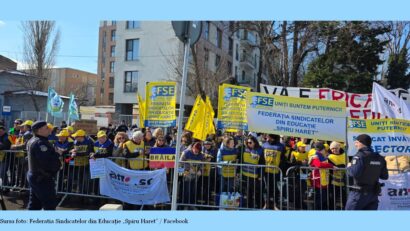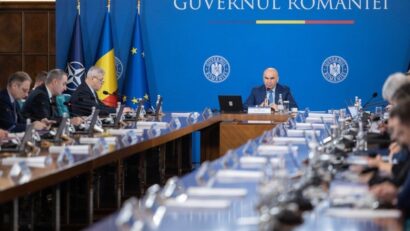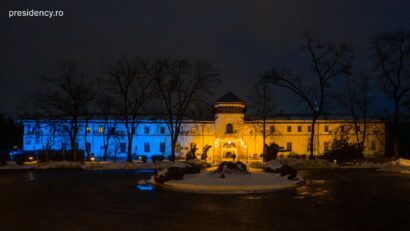Directions of Romania’s Foreign Policy
FM Bogdan Aurescu talks in an interview with Radio Romania about the countrys foreign policy directions.

Valentin Țigău, 14.01.2015, 13:48
The massacre at the office of the French magazine “Charlie Hebdo”, the hostage taking and the executions in a Jewish shop in Paris have shocked the whole world. A week after these tragic events, which have been compared with the September 11 terrorist attacks, political decision makers are looking for solutions to prevent such terrible things from happening again. Several countries have already taken exceptional measures in this respect. Romania has not changed its security policy but has joined efforts to fight this scourge.
Foreign Minister Bogdan Aurescu: “We have firmly and promptly condemned this tragic event because as far as Romania is concerned, nothing can justify a terrorist act, particularly when its target is the freedom of speech. In my opinion, one of the consequences of this situation is the need to strengthen international cooperation in fighting terrorism.”
The EU foreign ministers will convene in Brussels on January 19th, to find ways to combat terror under all its forms. The measures to be taken might include more thorough checks in the Schengen area that Romania intends to join. However, according to Minister Aurescu, these measures should not affect the freedom of movement within the EU.
Bogdan Aurescu: “Romania is ready to join these efforts, even if it is not a member of the Schengen area yet. In fact, Romania is already acting as a full member.”
Bogdan Aurescu has also said that border security is equally important for Romania, in the context of the war in Ukraine. Against this background, Romania’s foreign policy focuses on promoting solid diplomatic relations, political and military partnerships aimed at ensuring its long-time security.
Asked to summarize Romania’s foreign policy, the Foreign Minister told Radio Romania, “Romania’s foreign policy has goals agreed on through national consensus, so I don’t think we can talk about changing its main directions, such as its EU and NATO membership, the Strategic Partnership with the US and the Strategic Partnership for European Integration with the Republic of Moldova. All these are constant elements of Romania’s foreign policy.”
Talking about the Strategic Partnership with the US, Foreign Minister Bogdan Aurescu has stated that the anti-missile shield in Deveselu, southern Romania, will become operational this year, and the next stage is its integration in the NATO missile defense system.






























